If your goal isn't to work yourself out of a job then you're part of the problem
The only way to end this crisis is to demand measurable results from the program we fund
Hundreds of millions are spent yearly to ‘end homelessness’. The social service system has convinced the public that money will end this humanitarian crisis which is why there have been so many successful funding grants paid for by taxpayers. I would argue though if money were the solution we would have ended it by now. This money has primarily gone to helping grow these programs and to gainfully employ thousands of people. Once employed the goal is no longer to end homelessness but to ensure that the money continues to come in so everyone can keep their job. That is the flaw. The only goal of every program paid to help the homeless is to work themselves out of a job.
I have done this work long enough though to know that ending all homelessness is nearly impossible because the reality is many homeless choose the streets and will never accept real help. What we can do though through intensive outreach is to find every homeless person motivated to leave the streets and help them. We can then focus all our energy on the group of homeless who are ambivalent and only need that extra push. This will take more effort but is very doable. We then focus on the homeless who are deep into their addiction and also mentally ill and with intensive daily effort help over half of them. With enough effort through relentless daily outreach, I have proven we can reach a high percentage and place them in the most appropriate level of care.
What we would have left them was a much smaller group of homeless that would simply refuse all help to the day they die. This is when enforcement will be necessary to make sure they are not taking over our sidewalks or public parks. We will instead set up sanctioned camping in designated areas with security and access to wraparound care-type services. They will be given a choice to accept traditional help or to move into sanctioned camping. All of this is easier said than done. For one our current social service system has notoriously poor communication with all other programs making care coordination extremely difficult. With all the money we spent on building programs to ‘help’ the sad reality is navigating the social service system is extremely frustrating. I have done this for decades and I’m an expert yet when calling a program it is almost guaranteed that my blood pressure will go up trying to get anything done. Imagine a homeless person trying to wade through the same dysfunctional system.
Therein lies the flaw in our system. The very ones we hire to end homelessness are the same ones complicating everything yet also benefiting from the homeless crisis.
My idea is to make social services competitive. Reward programs that can show measurable results and penalize the ones not making a difference. This usually only works in the private sector and is why privately funded programs have some of the highest success rates. The Bybee Lakes Hope Center is a good example of a well run privately funded program.
It’s shocking to me that outreach has not been made a bigger priority. It is in the first contact at the street level where trust is built and restored. It is where the worker can see firsthand the reality of the streets and understand where these people are coming from.
It’s easy to conclude that all homeless are lazy because with billions spent to build programs the only reason they are on the streets is because they are lazy or stubborn. That is the case sometimes but I have been doing street homeless outreach for decades and there has always been a strong mistrust in the system. They do not believe they are going to get any real help or they tried to get help and got burned and over time just stopped trying.
Over the last four years, I have interviewed a few thousand homeless people. One of the first questions I ask them is “When was the last time an outreach worker approached you”.
About 70% have told me they have NEVER been approached by an outreach worker and about 90% have shared they have not seen one in about 2-3 years. It’s no wonder there is such a mistrust.
Outreach workers are out there but so many of them I have seen in action act as if they have never met a real-life homeless person. The conversations I have witnessed are so awkward that you want to walk away in embarrassment. This is not entirely their fault. It is the fault of the system. They are trained to act in a certain way that protects them and to follow strict standard operating procedures. The problem is you are working with a extremely complex population and what’s required is flexibility. Something the system is either unwilling or unable to do.
In conclusion, the first step in ending this crisis is to change our approach. The attitude should we need to all work ourselves out of a job. Not entirely though. Once we can get a majority of people off the streets what will be needed is prevention and retention programs to ensure this will never happen again. The only way that can happen is to require metrics. Measure our results to calculate what’s working and what’s not. This shockingly is much harder to do than it sounds. Unbeknownst to most of the public many programs do not have any requirements to produce results. They are simply given the money and hope they are effective. When they are not they ask for more money which 99% of the time is given. If this were the private sector they would only last a few months before going bankrupt.

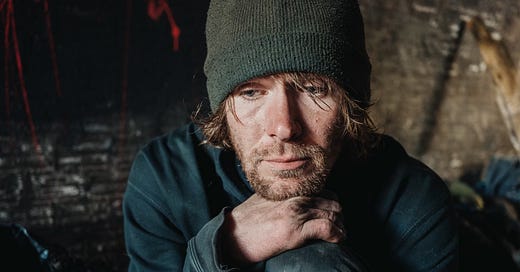



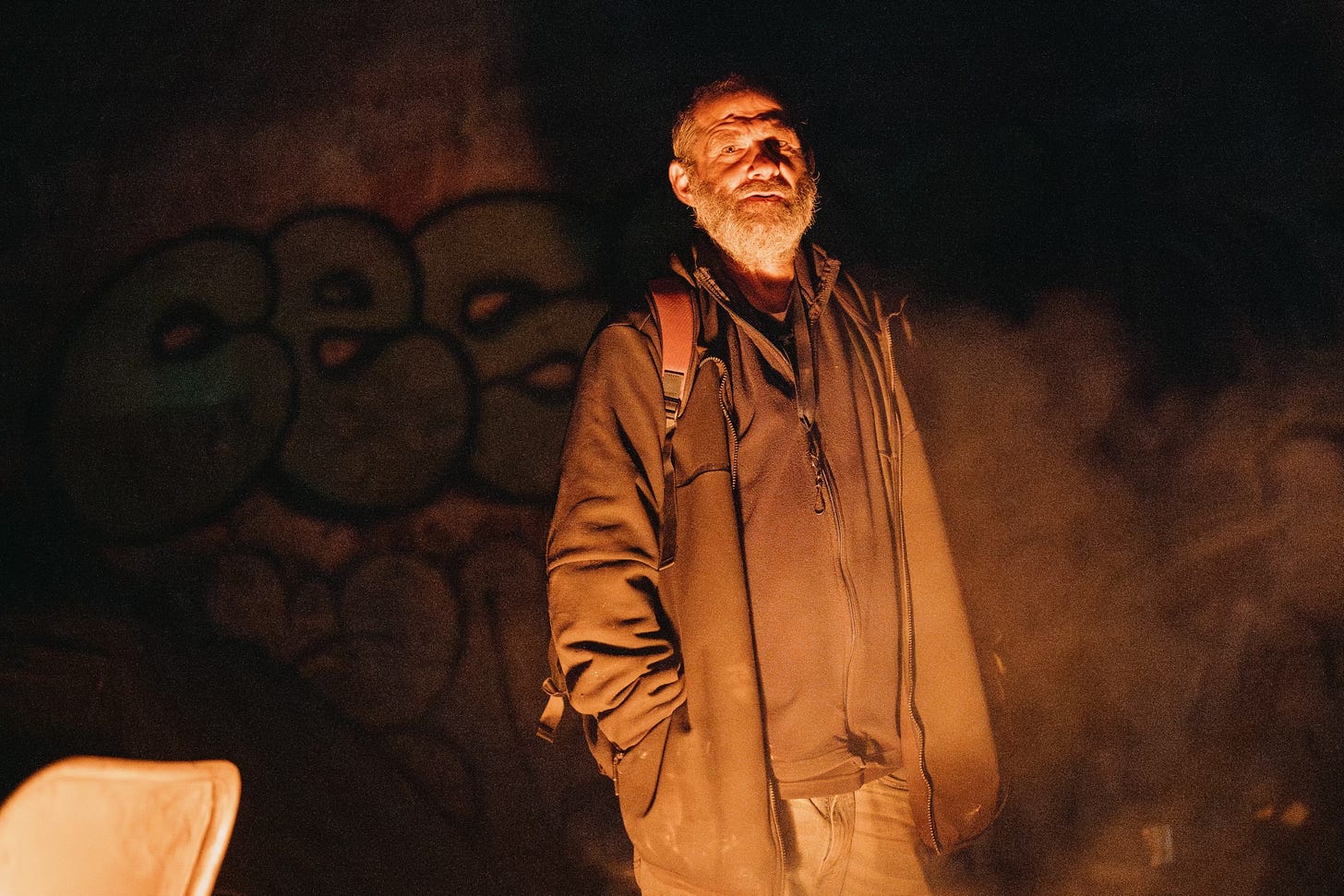
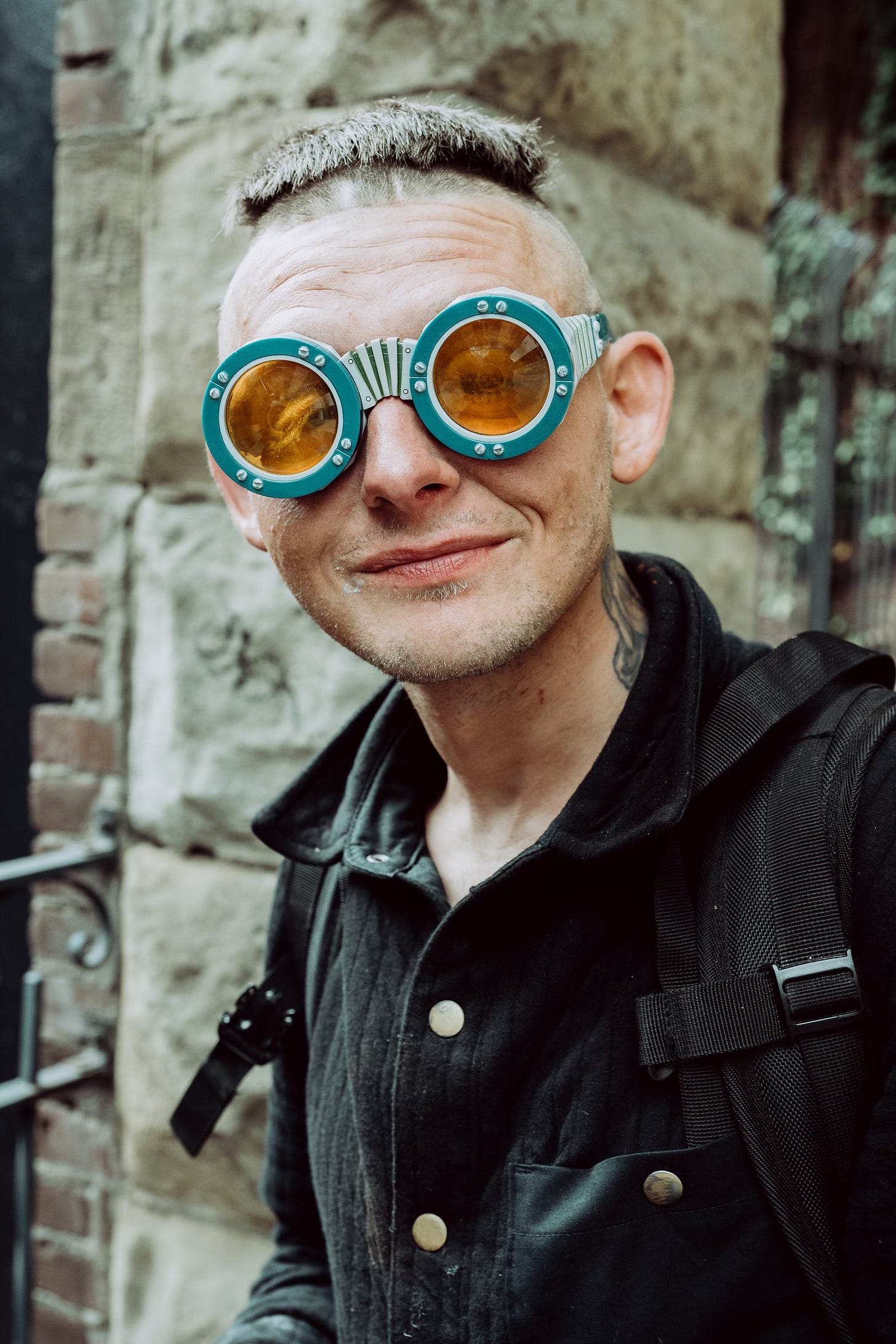

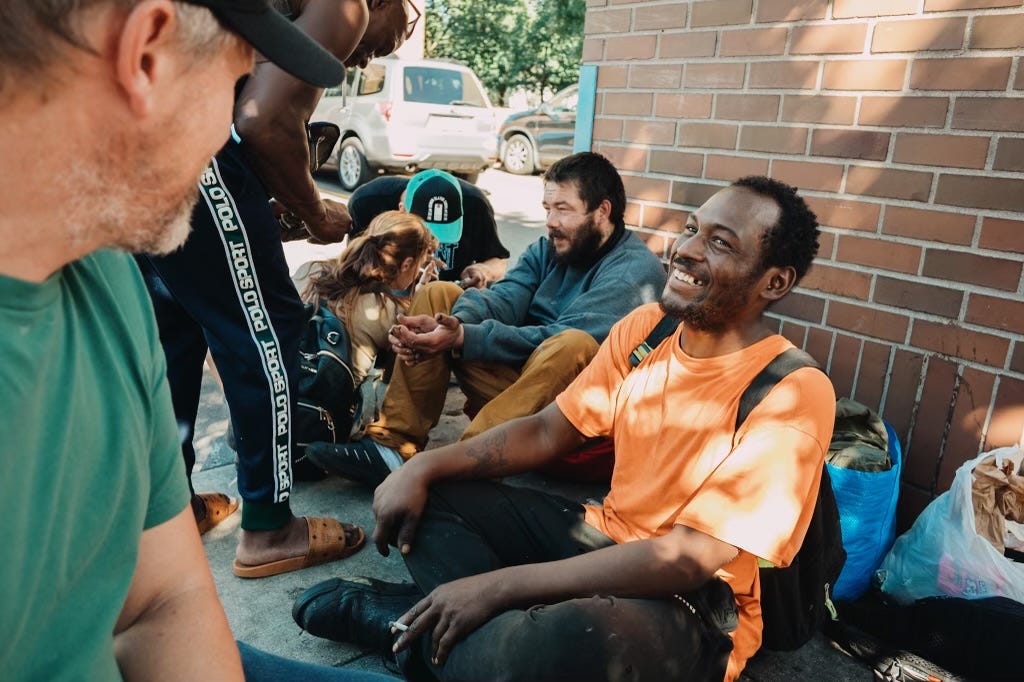
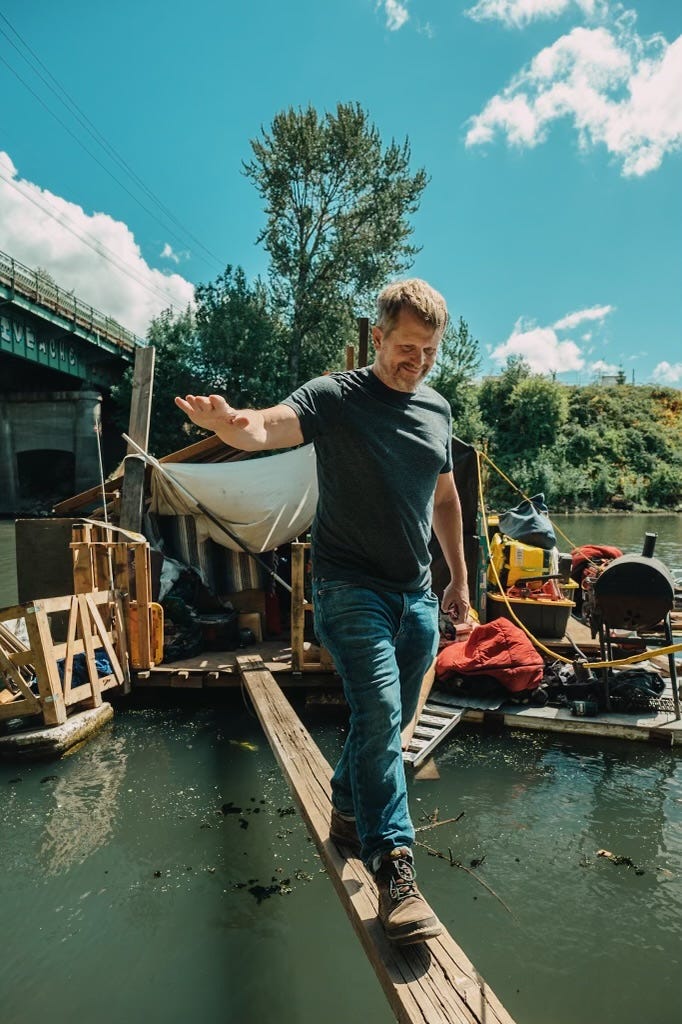
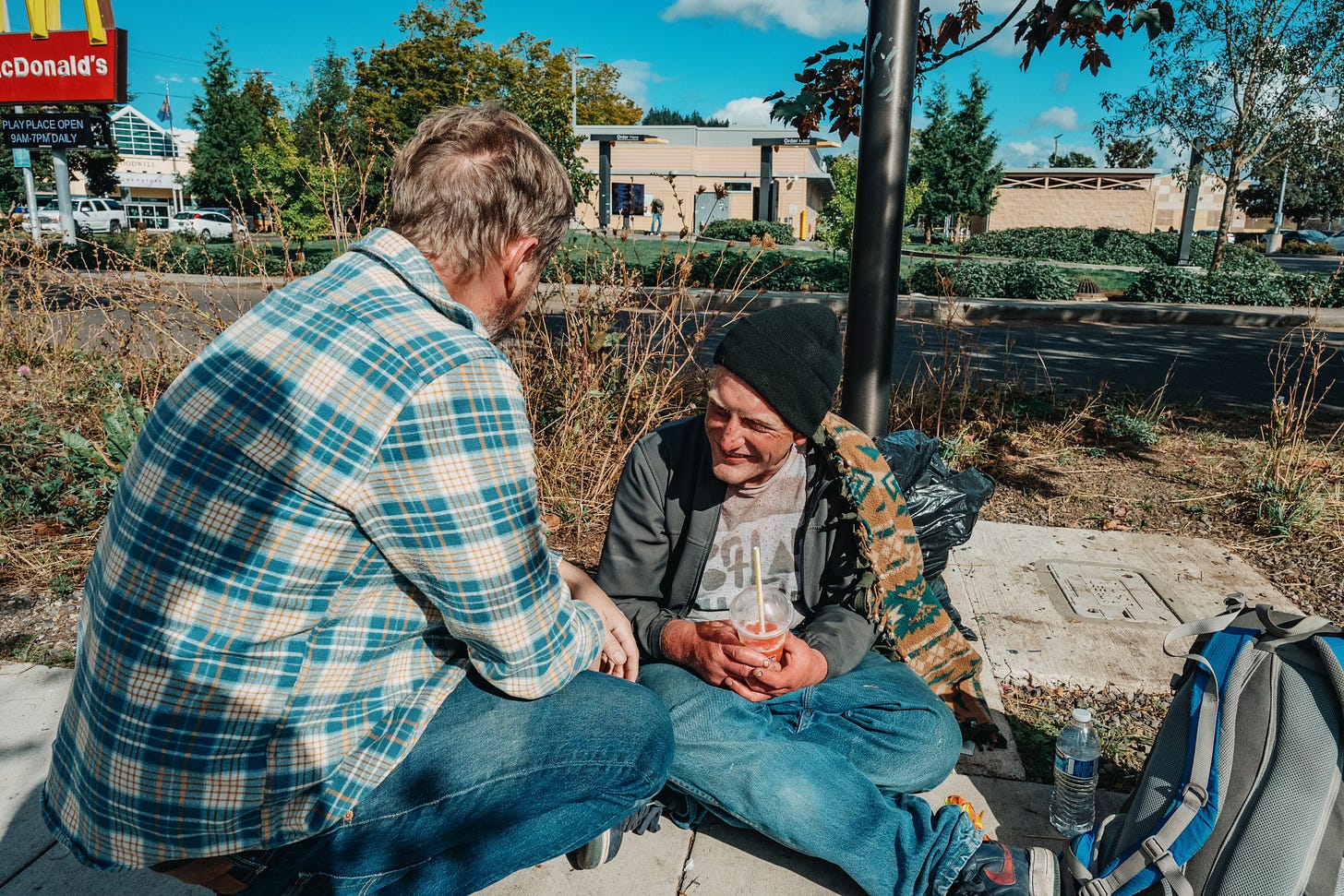
Thanks for the update, Kevin. It's always a bittersweet pleasure when you share your experiences and observations. The proposals you express seem so obvious on one level and so impossible the way things are currently set up.
I often think of childhood education in general when I read you. We all agree that education is important but we're jealous of spending the resources required and the staggering resources that we already devote are not being measured in terms of outcomes.
Dealing with other people is challenging under the best of circumstances. When the other people have "problems" it can seem nearly impossible. It's so much easier to wish you could just make them go away rather than addressing the reality of where people are at.
I don't have any new answers but I appreciate deeply your efforts and observations.
Thanks for keeping us posted. Keep up the good work. Keep poking.
Oh, Kevin, how I wish you could clone yourself and be editor of The Oregonian, the Multnomah County Chair, the head of JOHS (or whatever bureaucratic Frankenstein might replace it), Multnomah County DA and the City and County Auditor. Did I miss any other chokepoints who are keeping the homelessness crisis alive?
Your recommendations are spot-on, but how do we get there from here? Simply prying open and fixing the nonprofit component of the County's homelessness response program would be an extremely challenging undertaking. At a minimum it would require a reformist majority on the County Commission and ending the County Chair's stranglehold over the Commission's agenda. Alternatively, a truly comprehensive audit of the nonprofits and the County's dealings with them might be sufficiently explosive to create an opening for reforms.
When I think about the City and County's intractable and interrelated crises of homelessness, addiction and crime, I can't help wondering what role bureaucrats' ideological beliefs play in prolonging them. Anyone who has been following local legacy and social media (including this Substack) closely since about 2020 will have become aware that there's a school of thought that the homeless, addicts and criminals are victims of (capitalist) society; that it is society's obligation to support them to the fullest possible extent while expecting nothing from them in return; and that the moral thing to do is respect their autonomy and refrain from second-guessing their decisions and choices.
Are people who hold these views making or executing City or County policy? Are they designing and implementing City and County programs? Are there enough of them to present a real obstacle to ending the crises? If so, how can they be sidelined?
In earlier times, when religious orders still played a major role in providing social services, their members would have made ideal outreach workers. They would have a dedication to service, to helping people and to doing good works without expecting material rewards. Better still, they might not be adherents to the leftist ideology of the moment, at least not the way college-age students and recent graduates are. If I could make anything happen, maybe I'd bring underemployed members of foreign religious orders to Portland to be the outreach workers the city so badly needs.